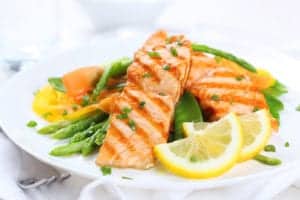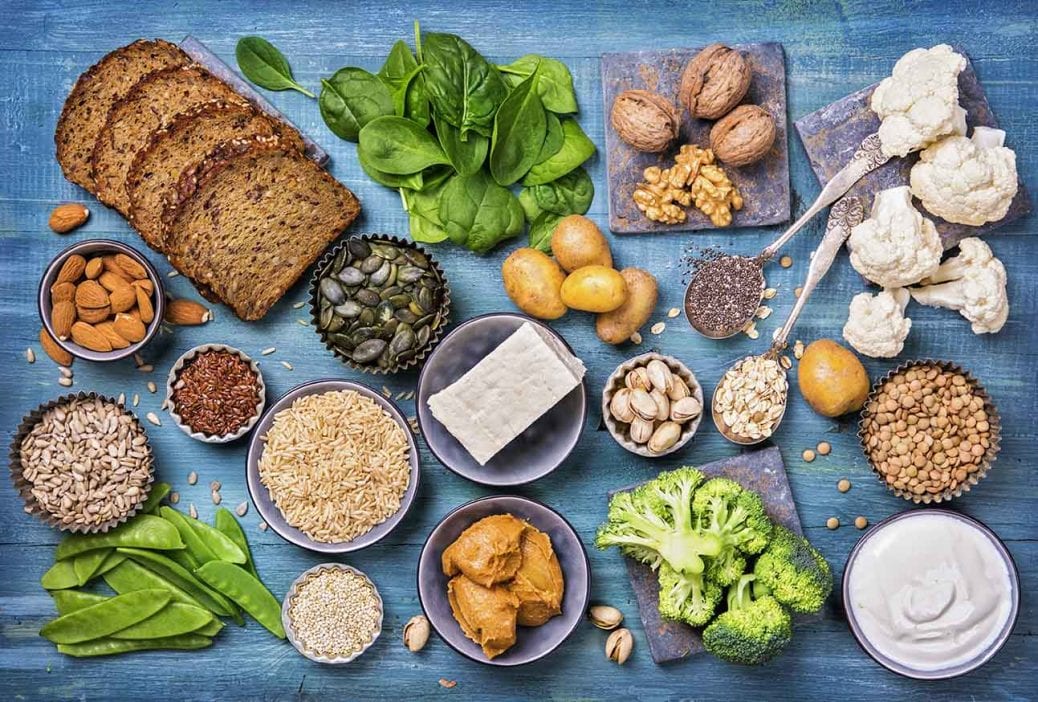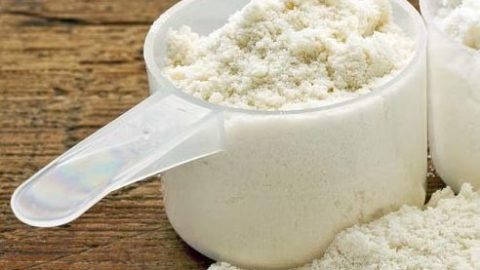Why am I writing this article? Because I have grown tired of rehashing the same information with dogmatic vegans who attempt to use the same false narratives and pseudo-science as their justification for recommending people go vegan and decided it was time I covered the topic. Vegetarians of the lacto-ovo variety seem to view being a vegetarian as a way of eating. Vegans however often approach it as more of a belief system, bordering on religion, and as with many of that ilk, don’t tend to let facts get in the way of their belief system. I’m supportive of any nutritional approach people wish to follow that they feel is best for their goals, but I loath dogma based on pseudo-science and demonstrably false claims such as “protein intakes above the RDA are bad for the kidneys” and “creatine has been shown to cause cancer” or the various “facts” some in the vegan community rely on to push an agenda. The goal of this article is to give people the facts, and let them make their own decisions.
I’m going to cover these topics in broad strokes, and leave it to the reader to follow up with the sources and links provided should they want to dive deeper into the details of each section. That’s the only way I can keep this article just short of text book length. In no particular order, these are some of the most common claims made by proponents of veganism:
“Humans Are Not Meant To Eat Meat”
This is in line with some claiming humans are naturally herbivores. There’s not a single evolutionary biologist, human anatomist, or respected human paleontologist, or major scientific group focused on human anatomy and physiology that view modern humans as anything but omnivores. There’s various claims of differences in teeth, or digestive systems, and so forth, of humans comparing us to other animals attempting to show we are herbivores, and they’re easily debunked. An excellent article examining that topic, is written by a vegan biologist HERE which covers the topic in great depth. To quote from the article:
“…trying to claim that humans are something else than omnivores are just counter productive since it’s quite easily debunked and we lose credibility. There are plenty of reasons to be vegan and still stick to what is true.”
We know that human ancestors were eating meat for at least two and half million years and one generally well accepted theory is we evolved into modern humans due in large part to our ancestors eating nutrient and calorie dense animal parts; meat, marrow, organ meats and so forth. How much animal flesh, marrow, or organ meats our ancestors ate varied greatly, dependent on geographical location, seasons, availability, and so forth. Claims that humans are not carnivores are correct! Humans are not carnivores, they’re omnivores, and our anatomy and physiology is quite clear on that one, and those vegetarian sources more interested in science – such as The Vegetarian Resource Group – agree with that assessment. (1). Humans are omnivores, the end. While modern humans are omnivores, it should be noted we appeared to have eaten meat almost exclusively for approximately two million years with one of the researcher calling humans of that era “hyper carnivores.” Of all the reasons offered by vegans as to why humans should not eat meat, I consider this one the lamest by far and it ends any credibility they may have.
Should We Eat Like Our Closest Relatives?
A logical segue from the last section is to address the common claim our closest relatives, the Chimpanzee, are herbivores and therefore we should follow their nutritional approach.
Why we should eat like our closest genetic relatives I don’t know, but let’s explore that one. It’s illogical on its face of course, but also false. The view of the sweet peaceful fruit eating chimp as who humans should emulate is misplaced. Chimps are hunters of animals, and highly aggressive hunters at that. While most of their food is plant based (fruit) to be sure, chimps are active hunters, and just like humans, will hunt an animal they eat, usually other monkeys, to virtual extinction if given the chance. When they run out of one species they like to eat, they start hunting others. (2) Yes, we humans and chimps have quite a bit in common, as chimps will form hunting parties, as well as start wars against other tribes, but that’s another topic for another day. In one location, chimps wiped out almost 90% of the Red Colobus monkey population due to over hunting. So yes, chimps are more like us than maybe most imagined, and not always in a good way. As one researcher put it:
“In their tendency to blindly over-hunt their prey, chimpanzees are rather similar to humans. Perhaps that’s not too surprising, as they are our closest living relatives.” (3)
Maybe it’s only chimps that do that? Nope. Their bonobo cousins are known to hunt and eat other mammals, including monkeys. DNA samples also suggest wild African western lowland gorillas do the same.
Health And Longevity
One primary claim of vegan proponents is that it’s superior way of eating for health and longevity. It’s true that some studies suggest  vegans suffer less diseases that afflict western society vs omnivores, but it should be noted that’s not a consistent finding and suffers a number of problems. Most of these studies are population studies, and compare the Standard American Diet (SAD) to those who are vegetarians or vegans. That’s setting a mighty low bar as virtually any diet is better than SAD. On that, I think virtually everyone can agree. A number of problems arise from this type of research such as confounders. For example, Healthy User Bias and Upper-class Bias; It’s found people who follow meat-free diets are also more likely to engage exercising regularly, don’t smoke, and are from higher-income families, who tend to have better health already. Finally, a major problem in nutrition research is inaccuracies in reporting of the diet. What people report, and what they actually eat, can be very different. There’s also population studies that find vegans actually suffer higher rates of some diseases, but not others. The reality is, people cherry pick the studies that support their pre-existing beliefs, and ignore what ever triggers their cognitive dissonance. For example, some will point to population studies such as the long lived people of Okinawa vs the Japanese population at large. All well and good, but while the population of Okinawa is not vegan, they do eat a high percent of their calories from plant based sources compared to other populations compared. “Ah ha!” says vegan and vegetarian advocates. However, there’s a wrinkle they often miss, or actively overlook:
vegans suffer less diseases that afflict western society vs omnivores, but it should be noted that’s not a consistent finding and suffers a number of problems. Most of these studies are population studies, and compare the Standard American Diet (SAD) to those who are vegetarians or vegans. That’s setting a mighty low bar as virtually any diet is better than SAD. On that, I think virtually everyone can agree. A number of problems arise from this type of research such as confounders. For example, Healthy User Bias and Upper-class Bias; It’s found people who follow meat-free diets are also more likely to engage exercising regularly, don’t smoke, and are from higher-income families, who tend to have better health already. Finally, a major problem in nutrition research is inaccuracies in reporting of the diet. What people report, and what they actually eat, can be very different. There’s also population studies that find vegans actually suffer higher rates of some diseases, but not others. The reality is, people cherry pick the studies that support their pre-existing beliefs, and ignore what ever triggers their cognitive dissonance. For example, some will point to population studies such as the long lived people of Okinawa vs the Japanese population at large. All well and good, but while the population of Okinawa is not vegan, they do eat a high percent of their calories from plant based sources compared to other populations compared. “Ah ha!” says vegan and vegetarian advocates. However, there’s a wrinkle they often miss, or actively overlook:
“In 1992 scientists at the Department of Community Health, Tokyo Metropolitan Institute of Gerontology, Japan published a paper which examined the relationship of nutritional status to further life expectancy and health status in the Japanese elderly. It was based on three epidemiological studies. In the first, nutrient intakes in ninety-four Japanese centenarians investigated between 1972 and 1973 showed a higher proportion of animal protein to total proteins than in contemporary average Japanese. The second demonstrated that high intakes of milk and fats and oils had favourable effects on ten-year survivorship in 422 urban residents aged sixty-nine to seventy-one. The survivors revealed a longitudinal increase in intakes of animal foods such as eggs, milk, fish and meat over the ten years. In the third study, nutrient intakes were compared between a sample from Okinawa Prefecture where life expectancies at birth and sixty-five were the longest in Japan, and a sample from Akita Prefecture where the life expectancies were much shorter. It found that the proportion of energy from proteins and fats were significantly higher in the former than in the latter. ” (4)
The point is, while population studies have their uses to be sure, they tend to suffer a variety of flaws as it applies to the application of nutrition in individuals per se and people need to read the finer details. This is not intended as a full review on this topic due to obvious space limitations, but it should be noted that the longest lived populations – while they do get most of their calories from a plant based diet – are not vegans and the studies above suggested the longest lived had a significantly higher proportion of energy from animal based proteins and fats. Can humans be perfectly healthy on a well-designed vegan diet? Yes! However, humans are highly adaptable omnivores and can survive eating damn near anything, but I’d posit that feeding any animal as its inherent physiology dictates, is likely to get the best results long term, as humans are not natural herbivores.
FYI, in case you’re wondering, the nutrition approach that is consistently associated with lowest rates of various common diseases, and  increased longevity, is what’s generally referred to as The Mediterranean Diet. This diet includes, vegetables, fruits, fish and whole grains, nuts, healthy fats, with minimal, but does not eliminate, red meat. If people ask me what the data consistently suggests is the optimal approach to health and longevity, the Mediterranean Diet comes up a winner study after study. As this is not an article about the benefits of the Mediterranean Diet, I will leave it to readers to follow up on that one, but it’s in line with what I and others have been recommending for decades.
increased longevity, is what’s generally referred to as The Mediterranean Diet. This diet includes, vegetables, fruits, fish and whole grains, nuts, healthy fats, with minimal, but does not eliminate, red meat. If people ask me what the data consistently suggests is the optimal approach to health and longevity, the Mediterranean Diet comes up a winner study after study. As this is not an article about the benefits of the Mediterranean Diet, I will leave it to readers to follow up on that one, but it’s in line with what I and others have been recommending for decades.
Side Bar: Longevity vs Sports Nutrition.
It should be noted, the optimal diet for health and longevity may not be the optimal diet for performance, or building muscle, and so forth. While the two are not mutually exclusive, they do appear to differ in some aspects and people should understand that what they eat to build muscle may not be what optimizes health and longevity per se. Obviously, one can strike a balance between them, but they should not be viewed as one and the same as a nutritional approach.
Nutrient Deficiencies In Vegan Diets
It’s well established that vegans regularly suffer from nutrient deficiencies, and most vegans will admit that. I’m not going to run down the list of deficiencies, as it does not really add to the discussion here, but a list does appear in the abstract posted in the latter sections. Of course proponents of the vegan approach will claim a “well-balanced” vegan diet and a few supplements will cover those nutrient deficiencies and point to the fact deficiencies are found in the general population of omnivores. They are correct on both points. However, per prior comment, comparing to SAD is a very low bar to set, and vegans must be extra diligent with their approach to assure they don’t suffer deficiencies. Can one be a vegan and not suffer nutrient deficiencies? Yes, but here’s a simple Q: who is less likely to suffer nutrient deficiencies; those who follow a well-designed vegan diet or those who follow a well-designed omnivore diet? One does need to be a scientist to figure out the answer to that Q…It should also be noted, over 80% vegetarians and vegans will go back to an omnivore approach, one reason being, difficulty of getting a balanced nutrient intake among other reasons listed. (5)
Psychological Disorders
It should be noted, which is usually ignored or intentionally overlooked I suspect, vegans and vegetarians are found to suffer from higher rates of psychological disorders compared to omnivores, and a number of studies have found that result. (6,7) Now, those studies also expose the flaws in such correlational population-based epi data as mentioned above. That is, cause and effect; as correlation does not always equal causation, nor should any be assumed no matter how tempting. However, a recent high quality meta analysis entitled Meat and mental health: a systematic review of meat abstention and depression, anxiety, and related phenomena concluded:
“The majority of studies, and especially the higher quality studies, showed that those who avoided meat consumption had significantly higher rates or risk of depression, anxiety, and/or self-harm behaviors.”
Why does that not get more attention among the meat avoidance community? Do the nutritional deficiencies in vegetarian and vegan diets some suffer cause increased rates of psychological disorders, or, are people with psychological disorders more likely to be vegetarians or vegans? Or, is it unrelated to either, or, a combination of both? The answer is unknown at this time, but it is something to at least be aware of. Is that a reason to not be a vegan (or vegetarian in this context)? That’s a personal judgement call I can’t make for people. Some people also report feeling better mentally and physically as vegans, but people should at least be aware of that data.
Advice For Vegan Athletes
What about athletes and active populations? Can people succeed in athletic endeavors as vegans? I suspect it depends to some degree on the type of athletic endeavor, but data is lacking. It’s surprising to me how little data actually exists looking at that topic, but “on paper” as they say, the answer should be yes. However, vegan athletes need to be that much more diligent to avoid and or address possible deficiencies. Luckily for us, an excellent review paper on that very topic was recently published, and I highly recommend anyone who is a vegan athlete, knows a vegan athlete, or is considering being one, read the full review paper. (8) Here’s the abstract from the review with the full paper linked in the sources section:
“With the growth of social media as a platform to share information, veganism is becoming more visible, and could be becoming more accepted in sports and in the health and fitness industry. However, to date, there appears to be a lack of literature that discusses how to manage vegan diets for athletic purposes. This article attempted to review literature in order to provide recommendations for how to construct a vegan diet for athletes and exercisers. While little data could be found in the sports nutrition literature specifically, it was revealed elsewhere that veganism creates challenges that need to be accounted for when designing a nutritious diet. This included the sufficiency of energy and protein; the adequacy of vitamin B12, iron, zinc, calcium, iodine and vitamin D; and the lack of the long-chain n-3 fatty acids EPA and DHA in most plant-based sources. However, via the strategic management of food and appropriate supplementation, it is the contention of this article that a nutritive vegan diet can be designed to achieve the dietary needs of most athletes satisfactorily. Further, it was suggested here that creatine and β-alanine supplementation might be of particular use to vegan athletes, owing to vegetarian diets promoting lower muscle creatine and lower muscle carnosine levels in consumers. Empirical research is needed to examine the effects of vegan diets in athletic populations however, especially if this movement grows in popularity, to ensure that the health and performance of athletic vegans is optimised in accordance with developments in sports nutrition knowledge.”
Be that as it may, I will again ask the simple question: Will a vegan athlete have greater difficulty avoiding nutrient deficiencies – which could have a negative impact in performance – compared to an athlete following a balanced omnivore diet? Again, one does not need to be a scientist to figure out the answer to that one… The paper gives solid advice for vegan athletes how to avoid nutrient deficiencies while optimizing performance via some supplements vegans may find very helpful.
Saving The Environment …
Doing things that help to protect the environment is a noble thing, and important to be sure, but people often get mislead as to what will actually help the environment vs. what will harm it and take at face value what they were told, especially if it supports their own pre-existing views on the topic. Many are under the impression that eating less/no meat is good for the environment. While it’s a contentious topic, readers should be aware that’s not even close to being universally accepted and it’s worth reading counter-views to at least be aware it’s nowhere near to as cut and dry as some may think. For example, I recommend reading Sorry, But Giving Up on Meat Is Not Going to Save The Planet and Vegetarian And ‘Healthy’ Diets May Actually Be Worse For The Environment, Study Finds and “Vegetarian and ‘Healthy’ Diets Could Be More Harmful to the Environment” and “Going Vegan Isn’t the Most Sustainable Option for Humanity” as places to begin researching that topic for non-scientists. Finally, for those want to get deeper into the science, an outstanding paper entitled “Friend or Foe? The Role of Animal-Source Foods in Healthy and Environmentally Sustainable Diets” just out reviews both health and environmental aspects and a must read paper on the topic.
The Ethical Vegan
From the previous sections, people may have concluded I’m against vegan eating. That’s not the case at all, but per my life mission over the last three decades or so, I want people to make informed decisions, and go from there. Who should be a vegan? Those who have a moral, ethical, personal, or any religious reasons, for not eating animals, should be vegans. Those reasons are just as valid as any other in my view. I shall quote the vegan biologist again:
“As a vegan, I strongly hold the position that killing and using animals for human gains is wrong. It’s wrong regardless of if it’s healthy or not. It’s wrong regardless of if it’s bad for the environment/climate or not.” (9)
“But wait, there’s more!” as the old commercials used to say to inspire people to impulsively purchase what ever they were selling. If that’s how you feel, that eating animals is morally and ethically wrong, and that’s why you have decided to be a vegan, then I say more power to you, but again, it’s not as simple as it may appear: If the goal is to reduce animal deaths due to human food consumption, various published papers suggest vegan eating may actually lead to a greater death toll of animal lives. Some have calculated that more animals are actually killed via the harvesting of the plants, and greater environmental damage done, and people need to be aware of that. See Ordering the vegetarian meal? There’s more animal blood on your hands for a discussion on that topic if interested. As expected, that and other papers that suggest being a vegan actually leads to more animals deaths vs less have been contested and challenged as to the methodology used and other variables (10) , but again, what people need to understand is, being a vegan is far from harmless to animals, and does come with large scale death to animals, be they cows or mice and birds.
Diving into the whole topic of whether it’s morally and ethically wrong for humans to eat animals is truly outside the scope of this article. However, whether I agree or not, those are valid reasons to be a vegan if you agree with the statement above, and I invite the reader to follow the link in the resources section for explore his thoughts on the topic in greater detail. Of all the reasons people decide to become vegans, the “ethical” vegan is the only one that carries any weight for me. Who knows, maybe I will conclude at some point I’m just not morally and ethically comfortable eating animals anymore myself and become a vegan. Stranger things have happened, but don’t hold your breath on that one. Still, I “get” why some don’t want to eat animals, or parts thereof, for their own personal reasons.
Conclusion
Per usual, the intent of this article is to assist people in making informed decisions based on science and objective reasoning, and allow them to journey on from there. I do feel that by consistently perpetuating bad science, pseudo-science, debunked claims, and mythology commonly based on emotions over facts, the vegan community is ultimately being counterproductive, perhaps reducing the number of people who decide to be vegans. If one becomes/became a vegan because they’re under the impression humans are not meant to eat meat, are naturally herbivores, or that studies all agree it’s the healthiest way to eat, and so forth, they’re misinformed. If that hurts peoples’ feelings, causes some cognitive dissonance* and angst for some, that can’t be helped. I’m not against vegan diets, I’m against the dogma and pseudo-science used by vegans to promote it. Science does not make allowances for our feelz, but it assists and direct us all to make informed objective decisions about what we eat; and other essential choices we make in life. This topic is should be no different.
Happy hunting… No pun intended!
Sources
(1) https://www.vrg.org/nutshell/omni.htm
(2) https://link.springer.com/article/10.1007%2Fs10764-015-9851-3
(3) http://www.bbc.com/earth/story/20150728-chimps-nearly-wiped-out-monkeys
(4) Shibata H., Nagai H., Haga H., Yasumura S., Suzuki T., Suyama Y. Nutrition for the Japanese elderly. Nutr & Health.
(5) https://www.psychologytoday.com/us/blog/animals-and-us/201412/84-vegetarians-and-vegans-return-meat-why
(6) https://www.ncbi.nlm.nih.gov/pmc/articles/PMC3466124/
(7) https://www.psychologytoday.com/us/blog/animals-and-us/201512/how-scary-are-the-mental-health-risks-vegetarianism
(8) https://www.ncbi.nlm.nih.gov/pmc/articles/PMC5598028/?fbclid=IwAR2U7Bl6xuiR8UzLiJHm7Bh4RnoXGXk11Xf4Fkn5OXIuHl0cDHeSPizHprY
(9) https://veganbiologist.com/2016/10/15/veganism-the-ethics/
- cognitive dissonance is the mental discomfort experienced by a person who simultaneously holds two or more contradictory beliefs, ideas, or values. This discomfort is triggered by a situation in which a person’s belief clashes with new evidence perceived by that person.
Will Brink is the owner of the Brinkzone Blog. Will has over 30 years experience as a respected author, columnist and consultant, to the supplement, fitness, bodybuilding, and weight loss industry and has been extensively published. Will graduated from Harvard University with a concentration in the natural sciences, and is a consultant to major supplement, dairy, and pharmaceutical companies.
His often ground breaking articles can be found in publications such as Lets Live, Muscle Media 2000, MuscleMag International, The Life Extension Magazine, Muscle n Fitness, Inside Karate, Exercise For Men Only, Body International, Power, Oxygen, Penthouse, Women’s World and The Townsend Letter For Doctors.
He’s also been published in peer reviewed journals.
Will is the author of the popular e-books, both accompanied by private members forum access , Bodybuilding Revealed & Fat Loss Revealed.
You can also buy Will’s other books on Amazon, Apple iBook, and Barnes and Noble.










At the 30000 foot view, The more whole grains, vegetables, beans, fruits nuts that we eat and the less meat that we eat, according to studies, the longer and healthier we live. This is a fact. Its not religion or pseudo science or anything else.Our bodies are favored anatomically to eat more plant based food rather than meat based. The longest lived peoples on earth are the folks that live in Loma Linda California of the 7th Day Adventists. In summary, vegetarians have consistently shown to have lower risks for cardiometabolic outcomes and some cancers across all three prospective cohorts of Adventists. Beyond meatless diets, further avoidance of eggs and dairy products may offer a mild additional benefit. Compared to lacto-ovo-vegetarian diets, vegan diets seem to provide some added protection against obesity, hypertension, type-2 diabetes; and cardiovascular mortality. Look up vegan and ncbi or vegetarian and ncbi and Blue Zones and ncbi.
Skimming my article and responding does not help your cause. I address all your points in the article. You can ignore the points as you wish, but it does not change facts that are presented.
You still won’t stand by your article will you? lol – science my arse! – you’re a fraud
The only reason I’m going to leave your response up is I want people to see the level of vitriol and emotional response when ever someone challenges vegan dogma. You live up to the stereotype perfectly. I’m happy to discuss the article and its content with rational people who get what I’m trying to say, but you’re clearly not up to the task. I’m more then happy to compare my background and bio to yours or anyone else in the health/fitness space I have been publishing for decades to see who the “fraud” is here. Now be gone.
ASSHAT reply Lil’ Jon
Good article Will,
You are probably familiar with Drs Greger and Esselstyn (spellings?). Both promote plant based diets, you know, don’t eat anything with a face or a mother. My wife and daughter are basically pescatarians, I’m the omnivore in the house. I found plant based to be unsustainable for me. I enjoy working out and staying active and plant based does not crank the tractor. I rotate the protein and try to stick with the lower fat lean options, seafood, chicken, turkey, lean beef. I guess that would be the mediterranean option as you mentioned. People need the discipline to experiment, make single distinct changes and see how it works for them and is it sustainalbe? I have met people who swear by the atkins diet and love the fact they can eat bacon, pork rinds dipped in cheese sauce and still lose weight. But nobody can eat that shit forever. Anyway, I enjoyed your article. Thanks
Forgot to mention in a previous post, there is an interesting film called “Game Changers”, and it highlights plant based athletes. If you haven’t seen it, check it out. Funny comment referring to a strongman, ” you are as strong as an ox” strongman reply, what does an ox eat, plants. Again, plants alone don’t cut it for me but, that me.
I know Dr, Gregers stuff, don’t know the second person you mentioned. To me, “plant based” is not the same as vegan per se. A diet that is say 80-90% plant focused is “plant based” but not vegan. I do discuss where some go wrong recommend vegan diets in the article, in terms of the types of data they tend to rely on, bias, cherry picking data, etc. if you give a close read of the health/longevity section. A diet focused on health and longevity (which is not the same as one focused on maximizing gym time, performance etc) should be mostly plant based, but not vegan as outlined in the article.
I have seen it. I enjoyed it. Didn’t alter any of my views however.
Not to be too pedantic here but one can have a plant based diet and not be a vegan. Being a vegan incorporates way more than not eating animal proteins. It is, like you said Will, bordering on a religion/philosophy/lifestyle. To Dan’s comment(s) vegan bodybuilding is a thing and there are several youtube videos about it. Its a relatively small percentage of bodybuilders that do this but that does not mean that what they are doing is nonsense.
Not pedantic at all, but a correct statement! Plant based does not = vegan per se,
This is why I started to follow you and became a member Will; to make informed decisions based on science. Happy New Years!!
I enjoyed your article about veganism, especially the part about the chimps. It made me chuckle several times today. Ironically, and I totally was not looking for this, I went to the bank and the teller and I were talking about some great sales in town and she asked what I just cashed in on. I told her about the deal on Vital Proteins bone broth. She asked more about it and then informed me she is vegetarian making her way to vegan. Of course I politely empathized with her cause (humanitarian) and explained my own misfortune with veganism (but did not go into how I rationalize animals eating animals, only that I mostly now eat fish, which she, interestingly, was okay with as to her, fish don\’t really have a brain, the way land animals do).
Back before it was trendy, in the late 80\’s/early 90\’s, I was a vegan for 8 years. I consulted w/ a dietitian and did plenty of reading to make sure I was doing it right, ate fortified foods, etc – and still ended up w/ serious problems (systemic candida, lost deep tendon reflexes on examination and was seriously b12 deficient, had osteopoenia in my early 30\’s). Even 20 years after I began eating flesh foods and supplementing w/ high doses of sublingual coenzymated forms of b12, my level is very low (but not as low as before). I had to see a hematologist a couple of years ago and he sent me to a gastroenterologist to check intrinsic factor level and antibodies. The gastro asked if I had ever been vegan and I said it was 20 years prior but she said it would still affect a person.
I totally get the spiritual/anti-cruelty, no-such-thing-as-humane-slaughter-of-animals idea and the way I resolve it is to remind myself that animals themselves kill other animals to survive (my cute little cat, for instance, finishes off the occasional mouse). Also, that researchers who set out to discover what native people around the world eat/ate found none of the diets were completely devoid of animal foods. The reason I did vegan was more a way to set limits around my food addiction when everything felt out of control, a system of sorts. Once I started eating animal foods again, my energy improved by leaps, and it was really a reduction in carbs (and elimination of gluten) with increased protein that helped normalize my eating.
Thanx for posting that Vicki, a good read for others to see your experiences.
well, do you suppose most vegans are democrats? Don’t want to be bothered with the facts. Is it NOT true we have a different digestive system than herbivores? Is it not true that we have different liver function that one. How about all the restrictions in Jewish law about preparation and eating of meat? How about Peter who was told in Act 10: 11-16 3 Times to “rise, Peter; kill and eat”?
Apparently vegans don’t care to know about what they are missing by NOT eating Red meat and fish. I find vegan laughable from a strictly human POV. They have no idea how we lived 10-50,000 years ago or they refuse to acknowledge it.
The article is not intended as vegan bashing, and their political affiliations are of no interest to me. I just want people to make informed educated decisions, and do their research, before following any nutrition program, especially one as restrictive as the vegan approach. Paleo, vegan, Atkins, what ever: people need to be aware of the supportable facts.
I would suppose no, the majority aren’t “Democrats” , because the majority are not U.S. residents.
There’s a rather large world.outside of the USA. As difficult as that may be to believe!
Hi Will,
My husband has been following you and I have as well, more recently. I am at a turning point lately, struggling with my 20 year vegetarianism. I did it for ethical reasons not health, but I am healthy, so perhaps it has worked in my favor. At first I did raw vegan, then vegan, then just vegetarian and most recently pescetarian. My husband recently started eating chicken and meat again, so I’m buying it, cooking it for him and my dog – and making something else for me. It’s seems silly to me to do that. I am defeating my own purpose and starting to wonder, have I saved any lives? Has anyone noticed except me when I have to eat the soggy pasta and side dishes at a party or event I’m at (which is several times a week)? I work out all the time and I am in great shape, but all these carbs are not making me look it. I’m seriously considering being done with my 20 year sacrifice. This article is helping me, thanks!
Depending on what data you look at, much dependent on type of farming, etc, you may not be saving any lives nor even assisting the environment, but that’s a highly contested topic. I wanted to give people the resources to really dig into the topic so they could really come to their own conclusions after examining both sides of the topic. Per the article, only aspect of veganism that carries any weight at all in my view is the ethical aspect, and while I “get” that, it may again not be what they think are the facts in terms of actual costs to animals lives, resources used, and so forth. That you’re now approaching the issue with an open mind, means you’re already much farther ahead of most others following a vegan diet. Good luck!
Perhaps “vegans” have psychological disorders before becoming vegans rather than being a byproduct of veganism. Most cult based dogma eating folks have some psychological issues. As seen by some of the responses here, there seems to be a connection. Or perhaps they just miss ribeyes so much they are constantly depressed. I don’t see the correlation between carrot eating and depression.
The possible correlation as mentioned in the article may be nutrient deficiencies the brain requires often lacking in vegan diets, also associated with better mental health, such as n3 lipids, and others. But, as discussed, cause and effect can’t be established from that data.
Hi Will, thanks for your comments and for digging into this a bit. Just curious, have you seen many videos by “Earthling Ed” on YouTube? He dives into some of the issues you brought up, such as the fact that some animals are killed in the production of plants that humans eat. However, most of the soybeans and corn, for example, aren’t actually grown to feed humans, but to feed humans the animals that eat those crops. So I think no matter how you slice it (pun intended, I suppose), a plant based diet is going to kill fewer animals than the other way around.
Either way I do think it’s important for vegans to be aware of potential deficiencies and to supplement accordingly. I take a multivitamin that helps me get B12, iodine, iron, etc. along with an algae DHA/EPA supplement and a separate vitamin D supplement and protein/creatine supplement. I want to follow the true intent behind veganism, which is to harm animals as little as possible, and to be kind to myself in the process. I think that’s ultimately what the majority of vegans are striving towards.
I think there needs to be an honest discussion on how many animals by shear numbers die following each, and it needs perhaps more research and honesty from the vegan/vegetarian side. My only point there is that the moral superiority of some vegans that they don’t have to kill animals to eat is a false one, and it may be correct as you point out that more die due animal farming. I think if a vegan reads my article without automatically being defensive and biased, they will see I’m not bashing vegan diets, but I am pointing out that many of the reasons used to be a vegan are either demonstrably false, or questionable at best. Older I get the more I “get” the moral / ethical aspects of it, and per article, the aspect that holds the most water in my view. When you claim humans not meant to eat meat, yada yada, you lose people like me who will in fact demonstrate that’s false. Finally, I think there does need to be a legit effort to assure feed animals suffer as little as possible.
Excellent article, Will. I’m 70 and have been studying nutrition for many years and have experimented with everything from Atkins to Pritikan, even going totally vegan for two years and transitioning to carnivore for a few months. I finally concluded that we are indeed omnivores (absolutely no doubt about that!), and am now convinced that something along the lines of the Mediterranean diet is ideal. The carnivore diet is growing in popularity today, and some (but not all) of its advocates are pretty radical, insisting that humans evolved on the muscle meat and fat of animals, that the carnivore diet is a species-appropriate diet for humans, and that fruits and vegetables are full of toxic, carcinogenic, disease-causing substances that should never be used as food by humans. I hope you will address these claims at some point.
As you can see in the article, I did mention the Med diet as likely ideal for longevity and disease prevention.
great artical will, you have the sciancie behind it, iam greatfull to you. GOD BLESS GINOV.
keep up the great work none you sance the 80s ginov.
I as well conceive thus, perfectly pent post!
I like reading through and I think this website got some truly useful stuff on it!